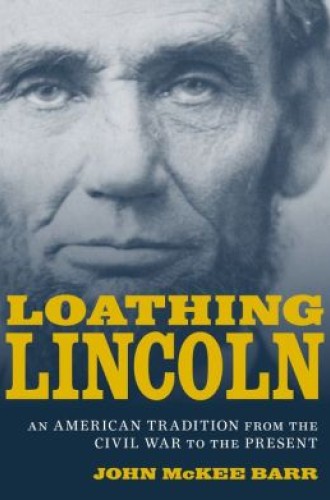With malice toward Lincoln
One year after Lincoln was assassinated by the pioneering Lincoln loather John Wilkes Booth, an ex-Confederate Texas fighter made this toast to his fellow former fighters: “Here is to the man that pulled the Trigger / That killed the man that freed the Nigger.”
In the early 20th century, the historian-general of the United Daughters of the Confederacy, Mildred Lewis Rutherford, and the president of the College of William and Mary, Lyon Gardiner Tyler, led the charge against what Tyler called “Lincolnolatry.” Rutherford exalted the sainted memory of Confederate president Jefferson Davis in comparison with the deceitful tyrant Lincoln and led a relentless campaign to purge school textbooks of any suggestion that the rise of the Confederacy might somehow have been tied to slavery. She was possibly the most effective guardian of political correctness in schoolbooks in American history—at least until recently when certain Texans decided to become arbiters of what children should learn about history, science, and other fields of study.
Meanwhile, Tyler portrayed Lincoln as both magically tyrannical and a “pitiful failure” who “sat around juggling with words and doing nothing.” That is, Lincoln somehow managed to centralize government and wield all power in his hands and yet was too incompetent to run an army (unlike George B. McClellan, a wonderful general in Tyler’s estimation). Writers to publications such as the Confederate Veteran, and later the famous “southern agrarians” (or “Fugitives”) of the 1930s, depicted Lincoln as the great “centralizer” and the progenitor of federal despotism, making arguments that showed how much they identified Lincoln with Woodrow Wilson.





